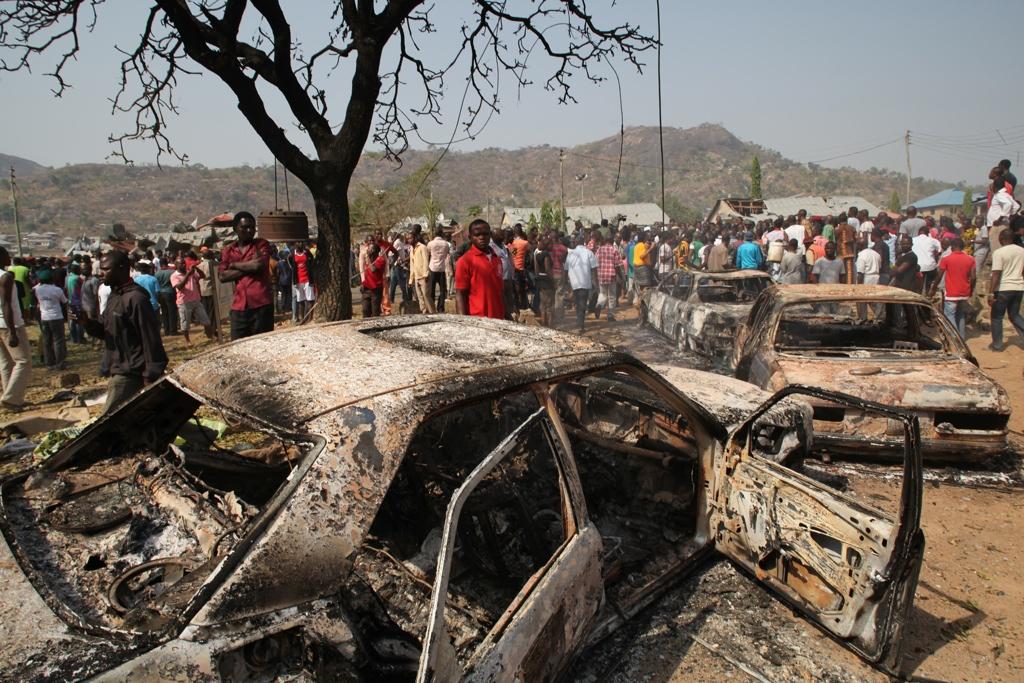Nigeria violence kills nearly 200 as government’s Boko Haram Committee talks peace
People gather around burnt cars after a bomb blast in Abuja.
Nigerian President Goodluck Jonathan has created a government committee with a difficult job: talk peace with Boko Haram, the militant Islamic sect behind an insurgency that has killed thousands of people since 2009.
Over the weekend, the bloodshed escalated in the town of Baga, near Nigeria's border with Chad. Battling between Nigerian security forces and suspected Boko Haram militants left a death toll of some 185 people and brought 2,000 homes razed to the ground.
Despite the violence, some Nigerian politicians said they were hopeful about peace. “The group has many people of integrity, many people who have concern for peace security as well as development of Nigeria as a whole," a leading lawmaker on committee Sheikh Lemu told Voice of America.
More from GlobalPost: Nigeria should be a land of riches
"Therefore, I’m optimistic that we shall look into the problem very objectively and give our advice in the form of recommendations to Mr. President," he added.
Some argue the government security services are part of the problem, not the solution. Until 2009, Boko Haram was not much of a force to be reckoned with, but then a bloody government-sanctioned crackdown killed 700 people including the group's leader who was murdered while in police custody, spurring the militants to step up their attacks.
Reports published last year by Human Rights Watch and Amnesty International alleged killings and other abuses perpetrated by security officers in attempts to defeat Boko Haram.
"The cycle of attack and counter-attack has been marked by unlawful violence on both sides, with devastating consequences for the human rights of those trapped in the middle," Amnesty's secretary general, Salil Shetty, said in November.
The fighting in the fishing town of Baga could bear the hallmarks of such a scenario, with security forces allegedly responding indiscriminately to attacks.
"The soldiers were mindless that night,” Baga resident Mallam Bana said, according to Bloomberg. “They killed and burnt our houses, chased everyone into the bush including women and children."
Senior Correspondent Tristan McConnell contributed reporting from Nairobi, Kenya.
We want to hear your feedback so we can keep improving our website, theworld.org. Please fill out this quick survey and let us know your thoughts (your answers will be anonymous). Thanks for your time!
